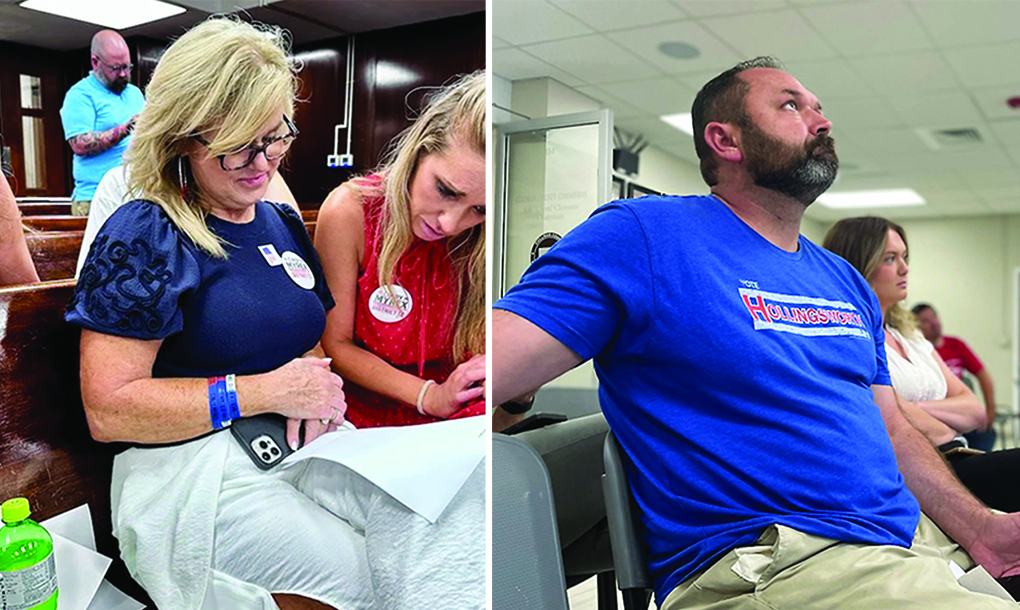Column: The press and the public are tied together
Published 2:09 pm Friday, March 18, 2016
Too many people don’t like the news media because of the conventional notion, advanced by our critics, that journalists are cavalier with the facts and report the news with bias.
This popular resentment, highlighted in the current presidential campaign, is tied to the misbegotten premise the press in America is a like-thinking, monolithic institution and shouldn’t be trusted no matter what.
Trending
The truth is our news media is the most diverse in the world, resulting in an assortment of local and national voices across the land. Some, yes, are one-sided or shrill. But most stick to facts and details resulting in stories that inform.
Importantly, the American conversation is better for the vastness of this news and commentary.
How so?
In our system of self-government, the people and the press are tied together. The news media’s role is to serve as a surrogate for citizens in holding public officials accountable, and for opening shut doors and locked file cabinets that inhibit the free flow of information.
That’s why hundreds of newspapers, radio and TV stations, cable news channels and online outlets are celebrating the 11th annual Sunshine Week across the country through Sunday. It is important that we explain how the work we do on the public’s behalf is important.
We don’t make a big deal out of pursuing our mission. Perhaps we should when you consider the consequences of secrecy.
Trending
A prime example of the press protecting the public welfare is portrayed in the Oscar-winning movie Spotlight – the true-to-life film about the Boston Globe’s exposure 14 years ago of sexual abuse of children by priests and their enablers in the Catholic Archdiocese of Boston. The results of the paper’s investigation are still reverberating as the church seeks to fix the systemic problem everywhere.
Constantly, some place in the country, there are less-publicized illustrations of the press fighting on behalf of the public for transparency by institutions with power, money and influence. Here are just a few from the recent files of my newspaper company that operates news outlets in 23 states:
- The Sunbury Daily Item in central Pennsylvania ran into unrelenting resistance when it requested the results of an outside law firm’s investigation into police conduct earlier this year. City officials and the law firm strenuously rejected public records requests, citing client-attorney privilege. But the paper’s appeal to the state Office of Open Records resulted in an order on Monday to release a redacted copy of the investigative report, causing the city to reluctantly hand over an un-redacted copy. The findings of police ineptness and massive misconduct promptly reported by the paper stunned the community.
- The Valdosta Daily Times in south Georgia recently discovered the local public hospital board of trustees had been violating the state’s open meeting law by conducting business in secret prior to meeting in public session. The paper urged the trustees to stop the illegal sessions but nothing changed until the Georgia Attorney General’s Office responded to the newspaper’s editorial campaign and stepped in. For serving the public interest, the newspaper took a blow to the economic chin, losing the hospital’s advertising account and the freedom to distribute papers to patients and visitors.
- The Palestine Press-Herald in northeast Texas went to bat for its readers recently when a local judge issued a gag order against press coverage of a shocking mass murder case involving six deaths at a local campground. Open record requests and legal objections resulted in the judge rescinding the restriction on coverage, and allowing the paper to examine affidavits and evidence in the case against the local resident accused of the horrific slayings.
On the national front, Sunshine Week brought good news in Washington when the Senate joined the House in passing legislation to strengthen the federal Freedom of Information Act.
The FOI Act hasn’t been updated since it was first enacted 50 years ago. We are now on the verge of Congress requiring federal agencies to liberalize the public release of records, limit the time some documents are exempt from disclosure, and expand electronic government records available online.
With the approval of a congressional conference committee and President Obama, the overdue changes will be codified into law.
If it happens, that’s a large victory for the public and journalists striving to fulfill their government watchdog responsibility. That will be a development that everybody, including the candidates for president, should celebrate.
Bill Ketter is the senior vice president of news for Community Newspaper Holdings, Inc., which serves more than 110 communities in 23 states.





